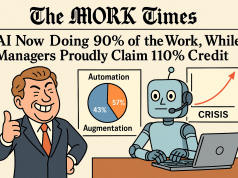As the digital age accelerates, automation and artificial intelligence (AI) are reshaping the terrain of countless industries, with the research sector standing on the front lines of this transformation. The era of AI has dawned, and with it comes a wave of change with profound implications for careers in research. In this blog, we will delve into the complex interplay between emerging technologies and the world of research, examining how the advent of AI and automation is not just altering the landscape, but also charting new territories for those within it.
The encroachment of automation into areas that were once exclusively human domains has triggered an inevitable shift in the research workforce. Traditional roles, known for their routine and repetitiveness, are being efficiently executed by machines, freeing researchers to tackle more complex and creative challenges. This shift is not about the displacement of jobs but the evolution of them. In response to this evolution, researchers are finding that interdisciplinary knowledge, alongside advanced analytical and programming skills, is becoming increasingly valuable. As such, skills in data science, machine learning, and computational statistics are now the keys to unlocking cutting-edge research opportunities.
Simultaneously, the emergence of new opportunities within the research sector cannot be understated. AI-driven analytics has given rise to a burgeoning field of inquiry that merges empirical research with predictive modeling, opening doors to jobs that fuse technological proficiency with investigative acumen. The ability to navigate these emerging fields, to straddle the line between tech-savvy and research-oriented, is what will define the most successful players in the new research landscape.
Yet, as the skills necessary for research careers evolve, so too do the ethical considerations. The integration of AI in research raises important questions about data privacy, algorithmic bias, and the potential implications of machine-driven decisions. As a result, there is a growing need for researchers who are not only technologically adept but also ethically conscious, capable of steering AI towards constructive ends while mitigating its potential downsides.
This evolution is also reshaping the way collaboration occurs within the research community. AI and automation facilitate global, cross-disciplinary partnerships, enabling more inclusive and diverse dialogues. The acceleration of research processes, from data collection to analysis, allows for swifter iterations and more dynamic collaborations. Moreover, the way knowledge is shared and published is transforming, with platforms leveraging AI to recommend relevant literature, detect plagiarism, and even generate articles.
In conclusion, the advance of automation and AI is a double-edged sword for the research sector: it presents challenges to traditional career paths while simultaneously fostering an environment ripe for innovation. For those embarking on or navigating a career in research, it is essential to adapt to these changes by developing a versatile skillset, engaging with ethical discourses, and embracing novel collaboration models. As these technologies become more deeply integrated into our work, understanding and leveraging them will not only be a professional asset but a necessity.
The ability to adapt to the continuously evolving landscape will determine the future of careers in research. Thus, the question for researchers is no longer whether AI will affect their careers, but how they will harness this digital revolution to carve out their own unique and fulfilling trajectory in the vibrant field of research.



























